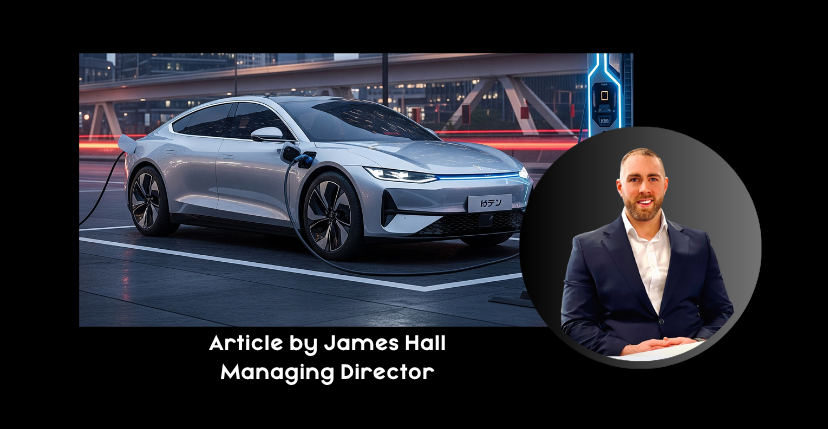How the UK’s EV Market Can Drive Jobs
Wednesday 4th June 2025

In his latest blog, James Hall, Managing Director, EMBS looks at how the rise of the UK’s EV market can help drive jobs.
According to statistics from the Society of Motor Manufacturers and Traders (SMMT), two in five new car models are now available as battery electric vehicles (BEVs).
There are over 130 BEV models on offer, a significant jump from 102 just last year. Add to that is the growing popularity of plug-in hybrids (PHEVs) and hybrids (HEVs). In the UK, that means four out of five car models now boast electrified powertrains.
Manufacturers have invested massively in developing these vehicles. This has led to BEVs now offering an average range of almost 300 miles on a single charge – a substantial increase from last year’s median of 235 miles.
The numbers speak for themselves. Electrified models now constitute 45% of UK new car sales, available across every segment and price point. BEVs alone hold a 20.4% share of the new car market, up from 16.9% a year ago.
A Boost for UK Industry and Jobs
So what does the rise of the EV market offer for the UK economy?
The automotive industry is already a significant contributor to the UK economy. 152,000 people are in the industry adding £19 billion to our economy. The transition to EVs can amplify this, attracting further investment, fostering British innovation and creating high-skilled jobs for generations.
Manufacturing and Supply Chain
As the demand for EVs escalates, so does the need for batteries, electric motors, power electronics, and other specialised components. This opens doors for new factories, research and development centres and a robust supply chain to support the burgeoning EV ecosystem. The UK has the potential to become a leader in battery gigafactories, creating thousands of direct and indirect jobs.
Charging Infrastructure
The rapid expansion of EV adoption necessitates a comprehensive and reliable charging network. This translates into significant investment in the installation, maintenance and operation of public and private charging points. This in turn will create jobs for electricians, civil engineers and network operators. Progress is being made, with over 72,000 public chargers and plans for another 100,000. However, there’s still work to do to ensure equitable distribution across the country, particularly in rural areas.
Research and Development
The constant evolution of EV technology, from battery chemistry to autonomous driving, will fuel further R&D in the UK. This in turn will attract top talent and cement the UK’s position as a hub for automotive innovation.
Real Job Creation
In May 2025 the government announced a £1 billion investment in a new gigafactory in Sunderland. It will be operated by AESC. This landmark deal is a clear sign that the UK is committed to becoming a global leader in EV manufacturing. It is set to bring thousands of high-quality jobs with it.
The new AESC factory alone will directly support 1,000 jobs, playing a crucial role in accelerating the transition to electric vehicles. This gigafactory is designed to manufacture enough batteries to power up to 100,000 EVs every year, a staggering six-fold increase on the UK’s current capacity. This massive scaling up means more British-made EVs can be sold both at home and abroad, helping us achieve our net-zero targets while bolstering our industrial strength.
This gigafactory is just one powerful example of how the EV revolution is translating into tangible job growth across the UK. From battery manufacturing and advanced component production to the development of charging infrastructure and cutting-edge R&D, the electric future is creating a wealth of opportunities and solidifying the UK’s position as a leader in advanced manufacturing.


